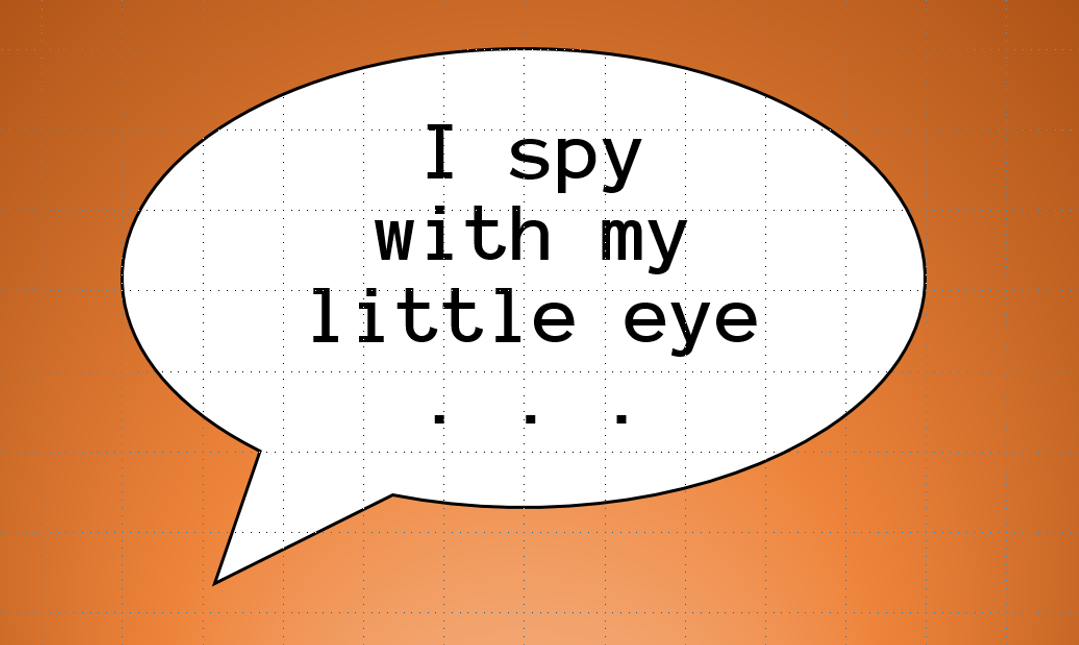'I spy' home activity - Parent template
Try to engage with your child in an ‘I spy’ activity at home or when you are outside. The game will encourage your child to use their observation skills, to listen to and actively use language to describe things, and to ask questions to find out more.

How to play the traditional game of ‘I Spy’
1. Choose who will go first in the game, who is the first ‘spy’.
2. Keeping it to themselves, the spy picks an object they can see.
3. The spy announces ‘I spy with my little eye, something …..
4. The other players then have to guess, looking around them, what the object beginning with that letter could be.
Language to use
Use questions to initiate the game with your child: You can try out different variations …
Phonetically: I spy with my little eye, something beginning with the letter/sound ‘a’ …. Can you guess what it is?
Colours: Can you see something that is red?
People: I spy someone with long hair. Can you guess who it is?
Letters: I spy the letter ‘A’. Can you see it? Where is it?
Numbers: I spy a number 3. Can you see it? Where is it?
Shapes: I spy something that is round. Can you see it? Where is it?
Then change roles. Now your child asks you to guess an object they spy. Use questions to find out what object your child is thinking about, such as:
Size: Is it big or small?
Function: Does it fly or crawl? Can I put things into it?
Number: How many legs does it have?
Colour: Is it blue?
Location: Is it in the room? Is it outside? Is it on the wall? Is it on the floor? Where does the person come from?
Texture: Is it soft? Is it spiky?
Words to use
Long, short
Thick, thin
Big, little
Top, bottom
Next to, between
First, last
Red, green, yellow, blue
1, 2, 3
Nice variations of the game
1) When going for a walk, ask your child to find:
- Signs with letters or numbers on them
- Words
- Patterns
- Writings in different languages
2) At home, ask your child to find as many objects as possible in the kitchen that start with a particular letter or sound.
3) If you have more than one language in your family, ask your child about words starting with letters and sounds in your home language and then in the school language.
Remember to talk to your child in your home language.
More about your child’s learning
This activity can support your child’s learning in so many ways! It is an opportunity to make sense of their surrounding environment, to observe and reflect on what they can see. It can help children to learn to understand categories. It can be played to support learning of shapes, numbers, letters and words. It is a great game to support language skills: It helps children to practice their skills to express themselves, to use different adjectives, to formulate questions and to answer questions.
If you are a multi-lingual family, you can also try to use more than one language when playing the game!